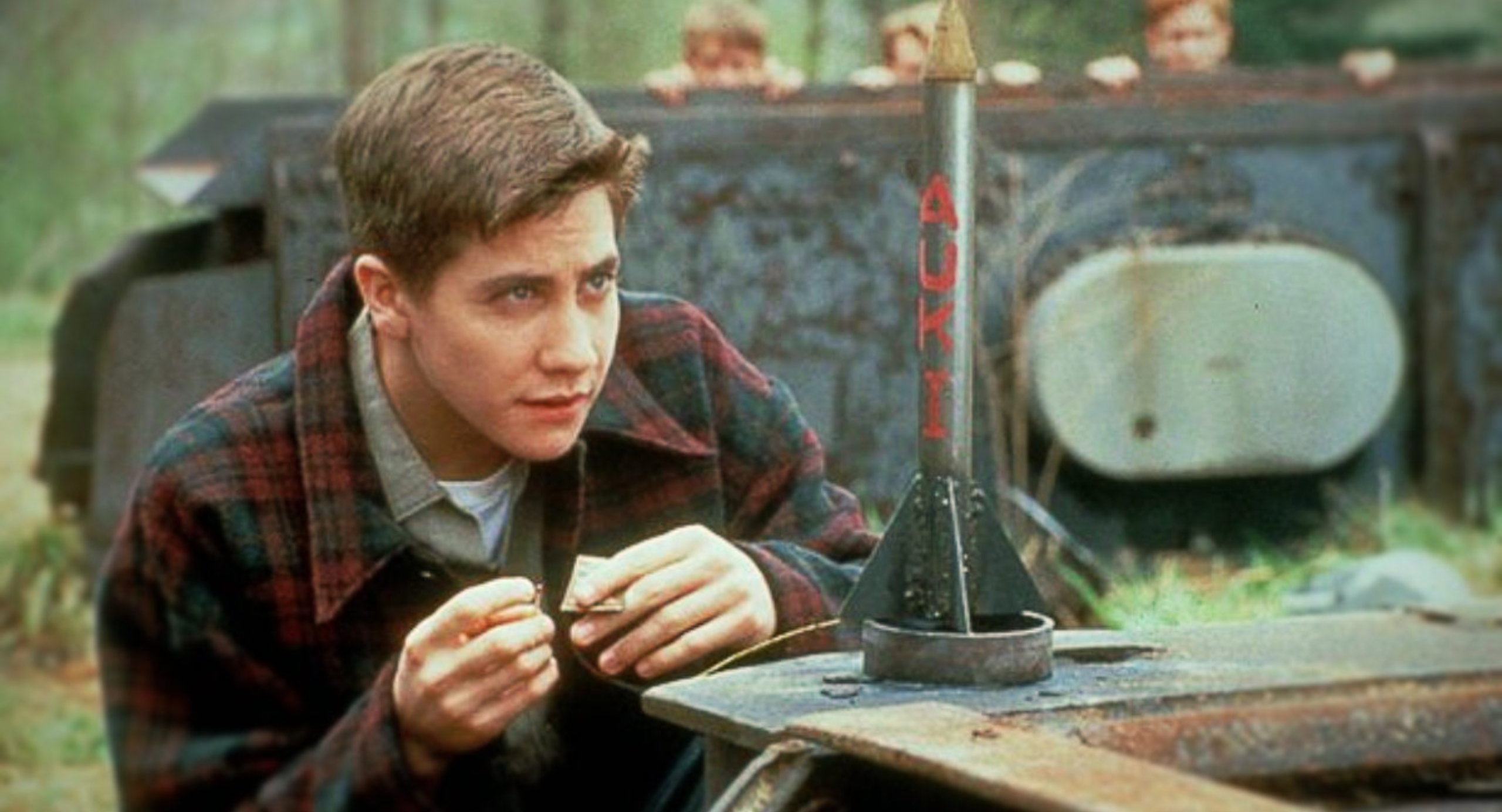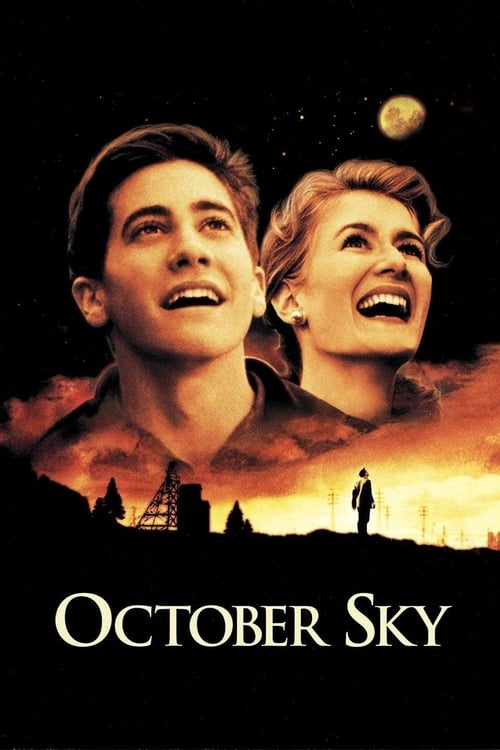October Sky – Film Review
Published March 14, 2024

October Sky, directed by Joe Johnston and released in 1999, stands as a touching and inspirational testament to the power of dreams, determination, and the relentless pursuit of knowledge. Based on the true story of Homer Hickam and adapted from his memoir, Rocket Boys, this film delves into the life of a young boy from a coal mining town in West Virginia during the late 1950s. With its potent narrative, compelling performances, and an evocative score, October Sky resonates deeply with viewers, earning a well-deserved spot among the classic feel-good American cinema.
The film is anchored by an outstanding performance from Jake Gyllenhaal, who plays Homer Hickam, a high school student inspired by the launch of Sputnik 1 to take up rocketry against his father’s wishes. Gyllenhaal’s portrayal of Hickam is both vulnerable and resolute, capturing the internal struggles of a young man torn between following his passion for rocketry and conforming to the expected life path of becoming a coal miner like his father, played by Chris Cooper. Cooper, in his role, delivers a formidable performance as John Hickam, embodying the tough, hardworking, but ultimately loving patriarch struggling with the shifting aspirations of his son.
Laura Dern, as Miss Riley, the supportive and nurturing teacher, shines brightly, offering a beacon of encouragement to Homer and his friends as they embark on their quest. Her character is instrumental in demonstrating the film’s underlying message that a single person who believes in you can change the trajectory of your life. Dern brings depth and warmth to the role, making her character’s pivotal influence on the boys both believable and heartwarming.
The supporting cast, including Chris Owen, William Lee Scott, and Chad Lindberg, as the friends and fellow rocket boys, contributes significantly to the film’s success. Their camaraderie, trials, and collective growth not only serve as the backbone of the narrative but also infuse the film with humor and heart. Their dynamic illustrates the importance of friendship and teamwork in achieving what seems impossible.
Director Joe Johnston captures the essence of the 1950s Americana with meticulous detail, from the costumes and set design to the portrayal of life in a coal mining town. The film’s cinematography, helmed by Fred Murphy, adeptly contrasts the bleakness of the mining town with the boundless promise of the sky, symbolizing the contrast between the constrained life expected of the boys and the limitless potential of their aspirations. The launch sequences are particularly compelling, providing a visual representation of hope and progress that is as uplifting as it is spectacular.
Mark Isham‘s score elevates the emotional resonance of the film, weaving a sonic tapestry that complements the narrative’s highs and lows. His music adds an additional layer of poignancy to the film, capturing the essence of inspiration, struggle, and triumph that defines October Sky.
While October Sky is a deeply moving film, it is not without its shortcomings. The narrative occasionally succumbs to predictability, with some plot points feeling a tad formulaic. Additionally, the portrayal of conflict, particularly between Homer and his father, sometimes veers into oversimplification. These moments lack the nuance and complexity real-life disagreements often entail, leading to a resolution that, while satisfying, could have been richer with more layers of emotional complexity.
Another area where October Sky could have expanded its horizon is in the depiction of the community’s response to the boys’ endeavors. The film touches on this aspect, showcasing moments of support, skepticism, and opposition, but a deeper exploration into how their rocketry pursuit challenged the town’s norms and values could have added an intriguing social dimension to the narrative.
Despite these areas for potential improvement, October Sky remains a compelling narrative about hope, perseverance, and the pursuit of one’s dreams, regardless of the obstacles. Its success lies not just in the story it tells but in how it chooses to tell it, with sincerity, warmth, and an unwavering belief in the possibility of a better future.
October Sky is a cinematic celebration of the human spirit, capturing the essence of curiosity, the importance of education, and the power of dreaming big. It is a film that not only entertains but also inspires, leaving viewers with a renewed sense of optimism and a reminder of the transformative power of faith in oneself and support from others. With stellar performances, a compelling narrative, and an emotionally rich score, October Sky rockets beyond the realm of mere entertainment into a heartfelt homage to the indomitable will to reach for the stars.
